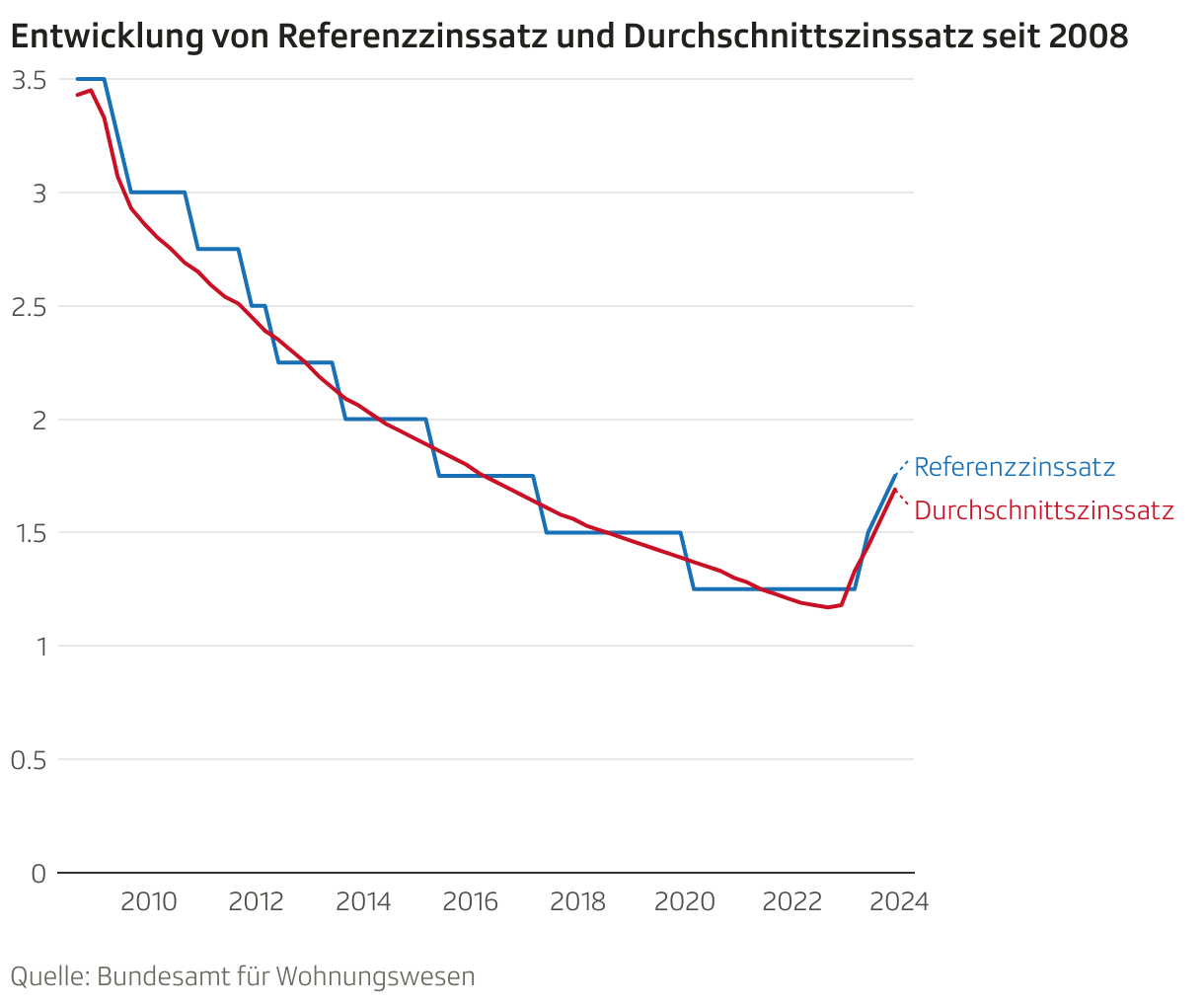Bad news for tenants: The reference interest rate rises from 1.5 to 1.75 percent, the second increase within six months. The reference interest rate is the basis for calculating rents, which are now continuing to rise. The rent increases lead to complaints. The current rental system is facing its biggest test since the introduction of the reference interest rate 15 years ago. SRF business editor Manuel Rentsch answers the most pressing questions.
What impact does the increase to 1.75 percent have?
An increase in the reference interest rate by a quarter of a percentage point means that the rents in existing contracts can be increased by three percent. However, there are limitations. Only those rents that are based on the previous reference interest rate of 1.5 percent or are lower may be increased. In other words: Those homeowners who have passed on the reductions to tenants in recent years are allowed to increase rents.

Legend:
The reference interest rate will rise once again – to 1.75 percent in December 2023.
Keystone/Steffen Schmidt/Archive
How many households are affected by the rent increase?
There are more than two million households in rented apartments in Switzerland. Around half of these rental agreements are based on the current reference interest rate. This means that more than a million households in Switzerland are potentially affected by a rent increase.
When will rents go up?
The rents can be increased to the next notice date, which is usually three months. After the increase in the reference interest rate, rents are likely to rise again on April 1st if the landlords decide to do so.
The reference interest rate already rose in June. Can the rent be increased again?
Usually yes. Together with the increase in the reference interest rate announced in June, this could lead to a rent increase of six percent. In addition, the landlords can claim the accumulated inflation and the general increase in costs.
What does that mean for households?
It is becoming apparent that many households can no longer afford the apartments. There is a return to old ways of living. Tenants are increasingly moving together and forming shared apartments. There is no clear trend yet, but there are initial indications. According to the Federal Statistical Office, the number of 3-person and 4-person households is increasing for the first time in years, and households are getting larger.
When will the reference interest rate rise again?
According to forecasts, the reference interest rate could rise again by 0.25 percentage points in 2025 and 2026. This means that the rents on existing contracts could rise by around 15 percent within three years – which is an extraordinarily high burden for many households. Rents and additional costs make up around a quarter of the budget of an average household.
Many tenants defend themselves and raise objections. What are the consequences?
The flood of complaints is pushing the current system to its limit – cases are piling up at the arbitration authorities. It is the biggest test since the introduction of the reference interest rate 15 years ago. In the first half of the year, arbitration proceedings in the rental and leasing sector increased by more than 40 percent. In the spring, the complaints from the first rent increase and those from the second could overlap – which could cause chaos for the authorities and also the administration.

